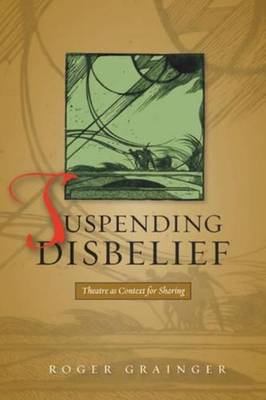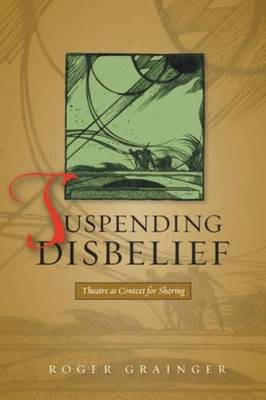
- Retrait gratuit dans votre magasin Club
- 7.000.000 titres dans notre catalogue
- Payer en toute sécurité
- Toujours un magasin près de chez vous
- Retrait gratuit dans votre magasin Club
- 7.000.0000 titres dans notre catalogue
- Payer en toute sécurité
- Toujours un magasin près de chez vous
23,95 €
+ 47 points
Description
This is a book about the central principle of drama and theatre -- how we join up with one another in order to enjoy a play. This is the principle defined by Coleridge when he described poetry as involving 'the willing suspension of disbelief', a phrase often used by theatre critics and others, but one which is rarely examined in any detail, having as much to do with psychology as aesthetics. Roger Grainger is both a psychologist and an actor, and is thus uniquely placed to investigate this shared territory, not only from an academic viewpoint but also professionally, in 'hands-on' ways. Theatre has the ability to transfer reality: it promotes a situation where disbelief is willingly suspended in every gesture of demonstration or presentation. As a consequence, imaginative involvement is at the heart of theatrical endeavour, and thus has inevitable crucial repercussions for human happiness and well-being. Drama and the uses to which we put it represent part of the process of living our lives -- drama is an aspect of being human which is frequently misunderstood and almost always undervalued. This fact about ordinary life is considered here with regard to its social and sociological implications. The concern here is with ordinary human experience; the purpose is to draw attention to something that is usually taken for granted and almost always denied the respect it deserves. Without the experience we so often dismiss as 'mere entertainment', we would not just find life less enjoyable, it would be unendurable. Without the psychological harmony with our inner selves and our worlds which imagination allows and encourages, we would struggle to be human at all. This book sets out to explain what it is that makes drama in all its manifestations -- including literature -- 'work', and how the engagement with imagination leads to psychological wholeness.
Spécifications
Parties prenantes
- Auteur(s) :
- Editeur:
Contenu
- Nombre de pages :
- 103
- Langue:
- Anglais
Caractéristiques
- EAN:
- 9781845193980
- Date de parution :
- 03-02-10
- Format:
- Livre broché
- Format numérique:
- Trade paperback (VS)
- Dimensions :
- 153 mm x 231 mm
- Poids :
- 190 g

Les avis
Nous publions uniquement les avis qui respectent les conditions requises. Consultez nos conditions pour les avis.






